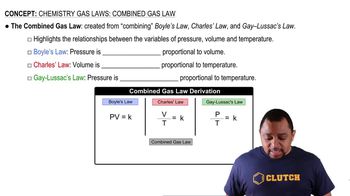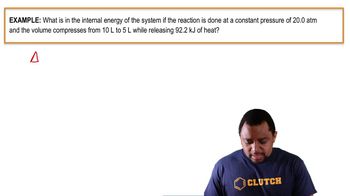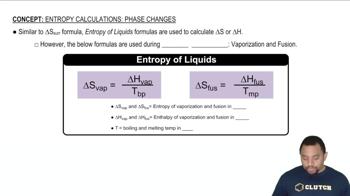Textbook Question
List the three states of matter in order of (a) increasing molecular disorder
3
views

 Verified step by step guidance
Verified step by step guidance



List the three states of matter in order of (a) increasing molecular disorder
List the three states of matter in order of (b) increasing intermolecular attraction.
(a) How does the average kinetic energy of molecules com- pare with the average energy of attraction between mole- cules in solids, liquids, and gases?
At room temperature, Si is a solid, CCl4 is a liquid, and Ar is a gas. List these substances in order of (a) increasing intermolecular energy of attraction